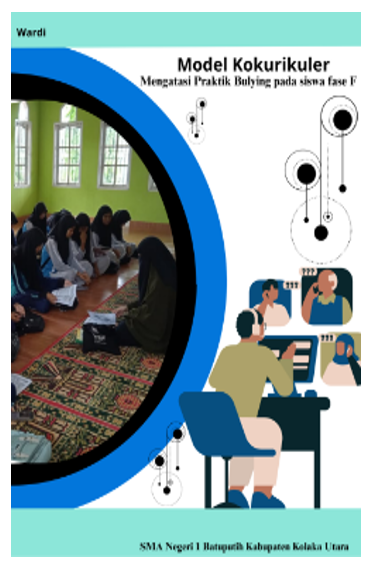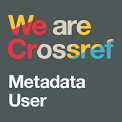Co-Curricular Model Design in Overcoming Bullying Practices in Phase F Students in Senior High School
DOI:
https://doi.org/10.51574/ijrer.v4i4.3807Keywords:
Bullying, Character Building, Co-Curricular Model, Islamic Education, Senior High SchoolAbstract
The ongoing prevalence of bullying among phase F students, which affects their psychological and learning processes, motivates this research. The purpose of this research is to develop a co-curricular model based on Islamic religious education in the form of additional learning manuals to reduce bullying behavior and foster positive character in students. This research uses the research and development method (Research and Development) with the ADDIE model, which includes the stages of analysis, design, development, implementation, and evaluation. The research subjects are phase F students and Islamic Religious Education teachers, while the research object is in the form of co-curricular guidebook products. Data collection techniques include observation, interviews, questionnaires, and documentation, with qualitative and quantitative descriptive data analysis. The results of the study indicated that bullying practices in schools appeared in physical (hitting) and verbal (mocking and disruptive) forms. The co-curricular handbook products developed have undergone validity and practicality tests, yielding average results of 85.50% (very valid) and 87.50% (efficient), indicating that they are suitable for use. Thus, the development of an Islamic religious education-based co-curricular model can be an effective strategy for suppressing bullying practices while contributing to the formation of students' character and enriching Islamic educational literature.
References
Adams, W. K., & Wieman, C. E. (2011). Development and Validation of Instruments to Measure Learning of Expert‐Like Thinking. International Journal of Science Education, 33(9), 1289–1312. https://doi.org/10.1080/09500693.2010.512369
Agung, B. (2025). Transformasi Kurikulum Merdeka: Analisis Filosofis dan Implikasinya terhadap Pembentukan Karakter Peserta Didik. Nizamiyah: Jurnal Sains, Sosial Dan Multidisiplin, 1(2), 92–104. https://doi.org/10.64691/nizamiyah.v1i2.41
Anjani, V. A. (2024). Cyberbullying dan Dinamika Hukum di Indonesia: Paradoks Ruang Maya dalam Interaksi Sosial di Era Digital. Staatsrecht: Jurnal Hukum Kenegaraan Dan Politik Islam, 4(1), 1–28. https://doi.org/10.14421/cyg94d68
Anwar, Z., Karwadi, K., & Masrifatin, Y. (2024). Analisis Program Anti Bullying sebagai Penunjang Karakter Profil Pelajar Pancasila di Madrasah Ibtidaiyah. Mentari : Journal of Islamic Primary School, 2(1), 14–25. https://www.ejournal.staimnglawak.ac.id/index.php/ment/article/view/1418
Dahlan, N. (2018). Penerapan Assertive Training Untuk Meningkatkan Keterbukaandiri (Self Disclosure) Korban Perilaku Bullying Verbal Siswa Di SMA Negeri 16 Makassar. Prosiding Seminar Nasional STKIP Andi Matappa Pangkep, 1(1), 129–135. https://journal.matappa.ac.id/index.php/SemNas/article/view/162
Dahlia, B., Azzahra, D. salsabilah, Azzahra, A. R., Dewi, S. P., Gunawan, F. A., & Abdillah, R. (2025). Luka Batin Tak Terlihat: Dampak Bullying pada Kesehatan Psikologis Siswa. Vitalitas Medis : Jurnal Kesehatan Dan Kedokteran, 2(1), 185–198. https://doi.org/10.62383/vimed.v2i1.1182
Dasein, B. M. (2017). Freedom to Learn for the 80’s. Educational Review, 69(2), 266–266. https://doi.org/10.1080/00131911.2016.1257558
El Zaatari, W., & Maalouf, I. (2022). How the Bronfenbrenner bio-ecological system theory explains the development of students’ sense of belonging to school?. Sage Open, 12(4), 21582440221134089. https://doi.org/10.1177/21582440221134089
Faizah, W. N., & Suttrisno. (2025). Implementasi Kokurikuler Terintegrasi dalam Pembelajaran Seni Budaya di SD/MI Berbasis Kurikulum Merdeka. Jurnal Penelitian Ilmiah Multidisipliner, 2(02), 706–713. https://ojs.ruangpublikasi.com/index.php/jpim/article/view/768
Gaffney, H., Ttofi, M. M., & Farrington, D. P. (2021). Effectiveness of school‐based programs to reduce bullying perpetration and victimization: An updated systematic review and meta‐analysis. Campbell systematic reviews, 17(2), e1143. https://doi.org/10.1002/cl2.1143
Gustiani, S. (2019). Research and development (R&D) method as a model design in educational research and its alternatives. Holistics (Hospitality and Linguistics): Jurnal Ilmiah Bahasa Inggris, 11(2). https://jurnal.polsri.ac.id/index.php/holistic/article/view/1849/0
Hanapi, J., Amaluddin, A., Jusrianti, J., Sutriana, S., & Hasnita, H. (2025). Pengembangan Keterampilan Sosial Siswa melalui Pembelajaran Pendidikan Agama Islam di Sekolah Menengah. Sulawesi Tenggara Educational Journal, 5(1), 376–384. https://doi.org/10.54297/seduj.v5i1.1121
Hidayati, L. N., & Amalia, R. (2021). Psychological Impacts On Adolescent Victims Of Bullying: Phenomenology Study. Media Keperawatan Indonesia, 4(3), 201–207. https://doi.org/10.26714/mki.4.3.2021.201-207
Hidayatullah, E. (2024). Rekonstruksi Konseptual Pendidikan Holistik: Pendekatan Fenomenologis terhadap Inklusivitas dan Kesadaran Sosial. Jurnal Studi Edukasi Integratif, 1(1), 55–68. https://pustaka.biz.id/journal/jsei/article/view/11
Hikmah, N. (2025). Model Pembelajaran PAI yang Berbasis Keterampilan Sosial: Pendekatan untuk Meningkatkan Karakter Siswa. Jurnal Kualitas Pendidikan, 3(1), 292–297.
Huberman, M., & Miles, M. B. (2002). The Qualitative Researcher’s Companion. SAGE.
Jenri, A., & Pitri Solida, S. (2023). Implementasi Pembelajaran Berdiferensiasi. Penerbit Adab.
Li, C., Wang, P., Martin-Moratinos, M., Bella-Fernández, M., & Blasco-Fontecilla, H. (2024). Traditional bullying and cyberbullying in the digital age and its associated mental health problems in children and adolescents: a meta-analysis. European child & adolescent psychiatry, 33(9), 2895-2909. https://doi.org/10.1007/s00787-022-02128-x
Liu, X.-Q., & Wang, X. (2024). Adolescent suicide risk factors and the integration of social-emotional skills in school-based prevention programs. World Journal of Psychiatry, 14(4), 494–506. https://doi.org/10.5498/wjp.v14.i4.494
Lubis, L. H., Febriani, B., Yana, R. F., Azhar, A., & Darajat, M. (2023). The Use of Learning Media and its Effect on Improving the Quality of Student Learning Outcomes. International Journal Of Education, Social Studies, And Management (IJESSM), 3(2), 7–14. https://doi.org/10.52121/ijessm.v3i2.148
Mahmoudi, M., & Keashly, L. (2021). Filling the space: a framework for coordinated global actions to diminish academic bullying. Angewandte Chemie, 133(7), 3378-3384. https://doi.org/10.1002/ange.202009270
Silva, C., Santos, R., & Barbosa, R. (2018). Detection and prevention of bullying on online social networks: The combination of textual, visual and cognitive. In International Conference on Intelligent Technologies for Interactive Entertainment (pp. 95-104). Cham: Springer International Publishing. https://doi.org/10.1007/978-3-030-16447-8_10
Maravelakis, P. (2019). The use of statistics in social sciences. Journal of Humanities and Applied Social Sciences, 1(2), 87–97. https://doi.org/10.1108/JHASS-08-2019-0038
Menteri Pendidikan dan Kebudayaan. (2017). Permen 23 Tahun 2017 Tentang Hari Sekolah. https://www.regulasip.id/themes/default/resources/js/pdfjs/web/viewer.html?file=/eBooks/2018/November/5be0fe167527d/Permen%2023%20Tahun%202017.pdf
Mudiyanse, R. M., Rathnayaka, A., Jayasinghe, H. M. A. U., & Wimalasiri, A. (2025). Empathy Education in Schools as Primordial Prevention of Antisocial Behaviours. In Education and Pedagogical Experiences. Routledge India.
Muthia, K. (2024). JPPI: 2024, Kekerasan di Lingkungan Pendidikan Melonjak Lebih dari 100 Persen. https://kbr.id/articles/indeks/jppi-2024-kekerasan-di-lingkungan-pendidikan-melonjak-lebih-dari-100-persen
Navarro, J. L., & Tudge, J. R. (2023). Technologizing Bronfenbrenner: neo-ecological theory. Current Psychology, 42(22), 19338-19354. https://doi.org/10.1007/s12144-022-02738-3
Nurhayati, D. A. W. (2025). Eksplorasi Pengalaman Korban Bullying: Narasi Pribadi dan Dampaknya terhadap Perkembangan Psikososial. Journal of Society Bridge, 3(2). https://doi.org/10.59012/jsb.v3i2.68
O’Higgins Norman, J., Berger, C., Yoneyama, S., & Cross, D. (2022). School bullying: Moving beyond a single school response to a whole education approach. Pastoral Care in Education, 40(3), 328-341. https://doi.org/10.1080/02643944.2022.2095419
Olweus, D. (2025). Bullying at school: What we know and what we can do. ResearchGate, 40(6), 699–700. https://doi.org/10.1002/pits.10114
Putri, E. D. (2022). Kasus Bullying di Lingkungan Sekolah: Dampak Serta Penanganannya. Keguruan Online, 10(2), 24–30. https://doi.org/10.30743/kgr.v10i2.6263
Putri, H. A., & Hibana. (2024). Menciptakan Lingkungan Belajar Aman dan Nyaman di Lembaga Pendidikan Anak Usia Dini. Kiddo: Jurnal Pendidikan Islam Anak Usia Dini, 754–767. https://doi.org/10.19105/kiddo.v1i1.14536
Raikhan. (2023). Pengembangan Kegiatan Kurikuler Sebagai Strategi Madrasah dalam Pencegahan dan Penanganan Bullying. Darajat: Jurnal Pendidikan Agama Islam, 6(2), 150–155. https://doi.org/10.58518/darajat.v6i2.2047
Rukayah, S., Sajdah, M., & Himawati, R. (2025). Strengthening Religious Moderation through Learning Media Innovation in High Schools. Journal of Islamic Studies and Educational Innovation, 1(2), 239–255. https://jurnalpasca.staiibnurusyd.ac.id/index.php/jisei/article/view/39
Shah, M. A. (2022). Teachers as reflective practitioners: From individualism to Vygotskian social constructivism. Alberta Journal of Educational Research, 68(3), 297-307. https://doi.org/10.11575/ajer.v68i3.68598
Saputri, R. N., Jupisa, R., Rahayu, A., Prameswari, T. I., & Handoko, Y. (2025). Refleksi Siswa Terhadap Perjalanan Perkembangan Psikologis Dari Pralahir Hingga Dewasa Muda. Jurnal Intelek Insan Cendikia, 2(6), 12429–12437. https://jicnusantara.com/index.php/jiic/article/view/3909
Smith, P. K., Mahdavi, J., Carvalho, M., Fisher, S., Russell, S., & Tippett, N. (2008). Cyberbullying: Its nature and impact in secondary school pupils. Journal of Child Psychology and Psychiatry, 49(4), 376–385. https://doi.org/10.1111/j.1469-7610.2007.01846.x
Vila, S., Gilar-Corbí, R., & Pozo-Rico, T. (2021). Effects of Student Training in Social Skills and Emotional Intelligence on the Behaviour and Coexistence of Adolescents in the 21st Century. International Journal of Environmental Research and Public Health, 18(10), 5498. https://doi.org/10.3390/ijerph18105498
Vygotsky, L. S. (2012). Thought and Language, revised and expanded edition. MIT Press.
Wulandari, F., Nurbayah, S., Saidah, F., & Ulum, M. Z. (2025). Character Education Management Through Intracurricular, Co-curricular, and Extracurricular Activities in Schools. Jurnal Inovatif Manajemen Pendidikan Islam, 4(1), 101-112. https://doi.org/10.38073/jimpi.v4i1.1958
Yeo, L. S., Liem, G. A. D., & Tan, L. (2023). Participation in school-based co-curricular activities and developmental outcomes: A self-determination theory perspective. Current Psychology, 42(35), 31600–31618. https://doi.org/10.1007/s12144-022-04189-2
Yuliyanti, S., & Juliangkary, E. (2023). Bullying di Lingkungan Pendidikan: Analisis Filsafat Pendidikan Dari Multiperspektif. Jurnal Ilmiah IKIP Mataram, 10(2), 230–242. https://e-journal3.undikma.ac.id/index.php/jiim/article/view/10539

Downloads
Published
How to Cite
Issue
Section
License
Copyright (c) 2025 Wardi Wardi, Hasbi Hasbi, Bustanul Iman RN

This work is licensed under a Creative Commons Attribution-ShareAlike 4.0 International License.









1.png)













